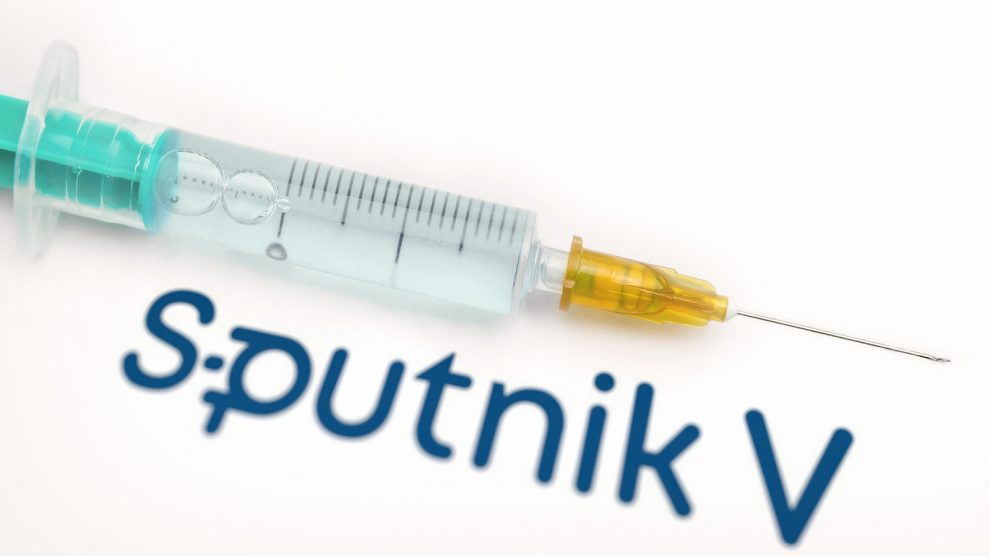Slovakia has been thrown into a political crisis over a deal to acquire Russia’s Sputnik V Covid-19 vaccine that now threatens the country’s ruling coalition.
Slovakia’s prime minister, Igor Matovič, has defended his decision to buy two million doses of Russia’s Sputnik V Covid-19 vaccine, despite disagreement among his coalition partners.
The first batch of 200,000 Russian-produced vaccines arrived in Bratislava on March 1, making Slovakia only the second country in the European Union, after Hungary, to import the Sputnik V jab. Mr Matovič had kept the deal secret until the vaccines arrived.
- Covid-19 vaccination rates: Much of CEE is doing better than the UK
- Historic crises show the Visegrád Group is a good partner for the UK
- China helps Serbia surge ahead in vaccine race
Sputnik V has yet to be approved by the European Medicines Agency despite late-stage trial results, published in the medical journal The Lancet in February, which show that the jab offers around 92 per cent protection against Covid-19.
The Sputnik vaccine works in a similar way to the Oxford/AstraZeneca jab developed in the UK, and the Janssen vaccine developed in Belgium.
It uses a cold-type virus, engineered to be harmless, as a carrier to deliver a small fragment of the coronavirus to the body.
“In Europe, Sputnik V vaccine has been approved in Slovakia, Hungary, San Marino, Serbia, Montenegro, Republika Srpska, Belarus and Russia with other countries of the region also showing strong interest in it,” said Kirill Dmitriev, CEO of the Russian Direct Investment Fund in a statement.
“We have received numerous requests from EU states to provide Sputnik V directly to them based on the reviews of their national agencies.”
High-risk strategy
However, the head of Slovakia’s drug agency, Zuzana Batová, said that the use of an unregistered vaccine is “highly risky.”
But with western vaccines rolling out slowly, Matovič defended his decision, arguing that Slovakia “is not in a position to rely only on European solutions”.
“We are at the point where it is not important where the vaccine is from, but whether it saves lives,” he added.
His coalition partners disagree.
Foreign Minister Ivan Korčok of the Freedom and Solidarity party, one of four members of the ruling coalition, said that he wants to consult the country’s other leaders over the purchase. Korčok said he considered the vaccine a tool in Russia´s hybrid war against the West.
“This political tool divides us at home and abroad,” Korcok said, adding that the purchase cast doubts on his country’s clear pro-West orientation.
Slovakia’s president, Zuzana Čaputová, has also criticised the purchase of the Russian vaccine, saying that while she was in favour of using “all available and safe vaccines” to protect people’s lives, the Sputnik V wasn’t one of them because “there’s no responsible authority to guarantee its safety.”
Slovakia has in recent weeks seen a sharp rise in the number of new Covid-19 infections, and on March 2 reintroduced strict lockdown procedures, including a nighttime curfew. The government said that if the measures do not slow the rate of infection by March 21, a full lockdown will be introduced and the country “sealed off”.
So far, 7,388 people died of Covid-19 in the country, which has a population of 5.4 million. Its current seven-day rolling average of deaths per one million people, 131.33, is the highest in the world.
Just 5.8 per cent of the population had received at least one dose of the Covid-19 vaccine as of March 2.
Unlike many news and information platforms, Emerging Europe is free to read, and always will be. There is no paywall here. We are independent, not affiliated with nor representing any political party or business organisation. We want the very best for emerging Europe, nothing more, nothing less. Your support will help us continue to spread the word about this amazing region.
You can contribute here. Thank you.








[…] Slovakian PM’s secret purchase of Russian Covid-19 vaccine angers coalition partners was originally published on Emerging Europe. […]
[…] Source link : https://emerging-europe.com/news/slovakian-pms-secret-purchase-of-russian-covid-19-vac… Author : Publish date : 2021-03-03 09:09:41 Copyright for syndicated content belongs to the linked Source. Tags: angerscoalitionCOVID19emergingEuropepartnersPM039spurchaseRussianSecretSlovakianvaccine Previous Post […]
[…] Slovakian PM’s secret purchase of Russian Covid-19 vaccine angers coalition partners […]
[…] cambio di direzione di Krajčí, fedelissimo del premier Matovič, ha scatenato le ire dei partner di coalizione di OLANO, la formazione politica che esprime il capo del governo. Richard […]
[…] Slovakian PM’s secret purchase of Russian Covid-19 vaccine angers coalition partners […]
[…] Slovakian PM’s secret purchase of Russian Covid-19 vaccine angers coalition partners […]